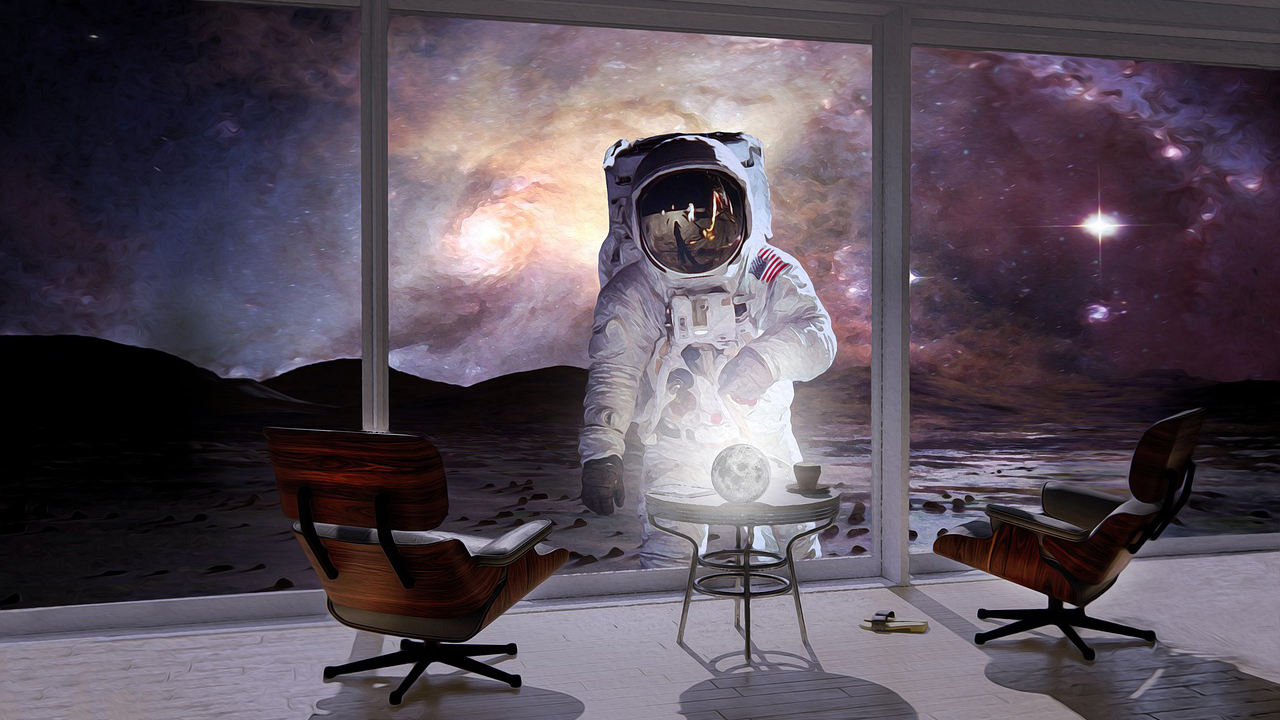Space tourism refers to any commercial activity that offers customers direct or indirect experience with the outer space for pleasure or recreation (Ferreira-Snyman, 2014). In this era of the coronavirus, there was a collective feeling of missing out on the way we live our lives as remote work and shopping became very popular. As a result, people missed out on their routine activities such as taking vacations with friends and family, going out for sport games to name a few. This gave us the edge to look for convenient avenues we could escape to when the world becomes chaotic, as it is often said ‘necessity is the mother of invention’ (Tomassini et al., 2021). There is a growing possibility for a more adventurous escapes to the stars in the future thereby giving way to the idea of space tourism for everyone and not just for the rich few. Space tourism is human space travel for recreational purposes, and different types of space tourism exist; orbital, suborbital, and lunar space tourism (Cole, 2015). Space tourism is in its infancy, and only a few billionaires and celebrities have made it to space for vacation. However, within the next 15 to 20 years the rapid development of the internet and technological advancements in the Space industry with the involvement of the private sector will make the dreams of an ordinary man going on vacation to sub-orbital or orbital a reality.
Features of Space Tourism
Suborbital space travels offer a short-time zero gravity and a perfect view of the earth from space (Zakaria et al., 2011). Travelling to space for recreation and fun changes how humans view the world. Viewing the planet earth from above is an experience that will change the way we perceive and value our planet earth. It is general belief that most human beings will live and die without ever venturing up to space; however, the fact that space tourism could be made possible in the years to come for every human being is seen as a potential life achievement.
Another essential feature that excites humans about travelling to space is the experience of microgravity. Microgravity is a condition where passengers feel weightless and can float around in a spacecraft (Zakaria et al., 2011). This feeling of euphoria and change in gravitational force brings many a different level of being and satisfaction as they are exposed to living a strange life they had never experienced before.
Moreso, space travel will facilitate scientific research on other planets such as the Moon, Mars, and other worlds where the human being can survive and live. This research could prepare a backup planet for the earth if something happens and people need to move to a new world. Though scientists conduct such research, it will need to be evaluated by ordinary people to validate the findings and be sure that humans can live on other planets.
Limitations of Space Tourism.
Space tourism comes with legal challenges from various nations on who has jurisdiction over what portion of space. This was evident in the launch of the first artificial satellite Sputnik 1, which led to the space-era cold war between the United States and the Soviet Union (Ferreira-Snyman, 2014). These two countries linked space activities to political objectives, national security, and military might. Given space’s strategic and political importance, these two giant space powers were not ready to allow nongovernmental actors like civilians to explore outer space. This position has not changed significantly and will have to be an issue potential commercial spacecraft companies will have to consider.
Also, when advancements in technology drive down the cost of space tourism, spacecraft accidents will be inevitable in the near future. As a result, legal questions on who has jurisdiction and the responsibilities of countries to rescue space tourists in distress and liability damages in the event of space accidents will come to play (Ferreira-Snyman, 2014). As a result, a review of the outer space treaty is critical in the era of commercial space visits.
Purpose of Space Tourism
One of the main objectives of space tourism is to give tourists the ability to experience a different planet other than earth for recreation, leisure, or business. Viewing and appreciating the existence of the planet earth from a distant horizon provides a sense of belonging to humans. Also, space tourism is critical in driving space innovations in different domains such as technology, and health, thereby inspiring a new generation of engineers who will foster more discoveries and inventions on planets other than the earth. Space tourism could also be a massive driver toward creating employment opportunities and new businesses that will help curb unemployment rates in various countries participating in space travel programs.
References
Cole, S. (2015). Space tourism: prospects, positioning, and planning. Journal of Tourism Futures, 1, 131-140. https://doi.org/http://dx.doi.org/10.1108/JTF-12-2014-0014
Ferreira-Snyman, A. (2014). Legal challenges relating to the commercial use of outer space, with specific reference to space tourism. Potchefstroom Electronic Law Journal, 17(1), 1-50. https://hdl.handle.net/10520/EJC151932
Tomassini, L., Schreurs, L., & Cavagnaro, E. (2021). Reconnecting the space of tourism and citizenship: the case of tourists’ hubris. Journal of Tourism Futures, 7(3), 337-349. https://doi.org/http://dx.doi.org/10.1108/JTF-10-2020-0176
Zakaria, N. R., Nasrun, N., Abu, J., Jusoh, A., Azim, L., Said, M. A., . . . Zakaria, N. R. (2011). The advantages, potentials and safety of vtol suborbital space tourism operations. 5th International Association for the Advancement of Space Safety Conference, Versailles, France.
-
Mavis Ofehttps://eyongesttech.com/author/admin-eygtech/
-
Mavis Ofehttps://eyongesttech.com/author/admin-eygtech/
-
Mavis Ofehttps://eyongesttech.com/author/admin-eygtech/
-
Mavis Ofehttps://eyongesttech.com/author/admin-eygtech/


